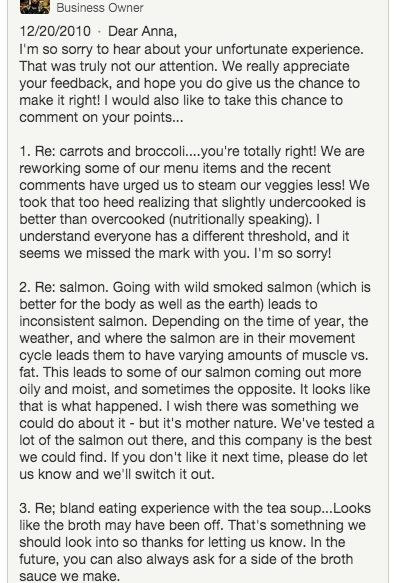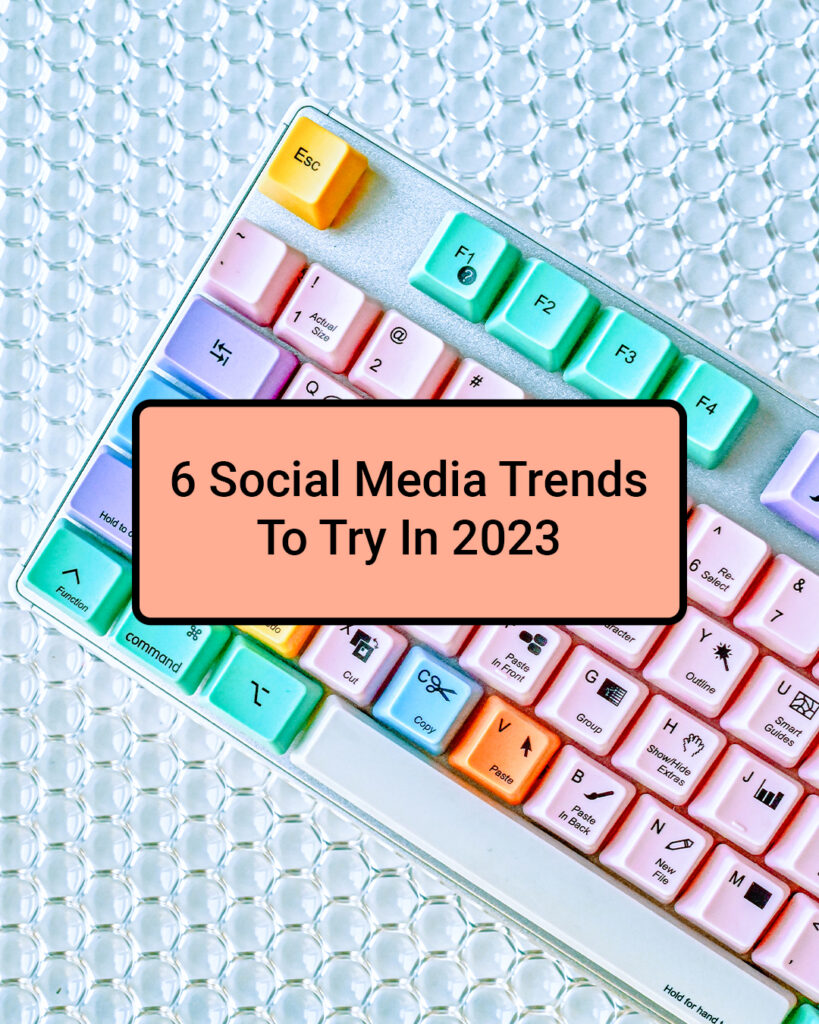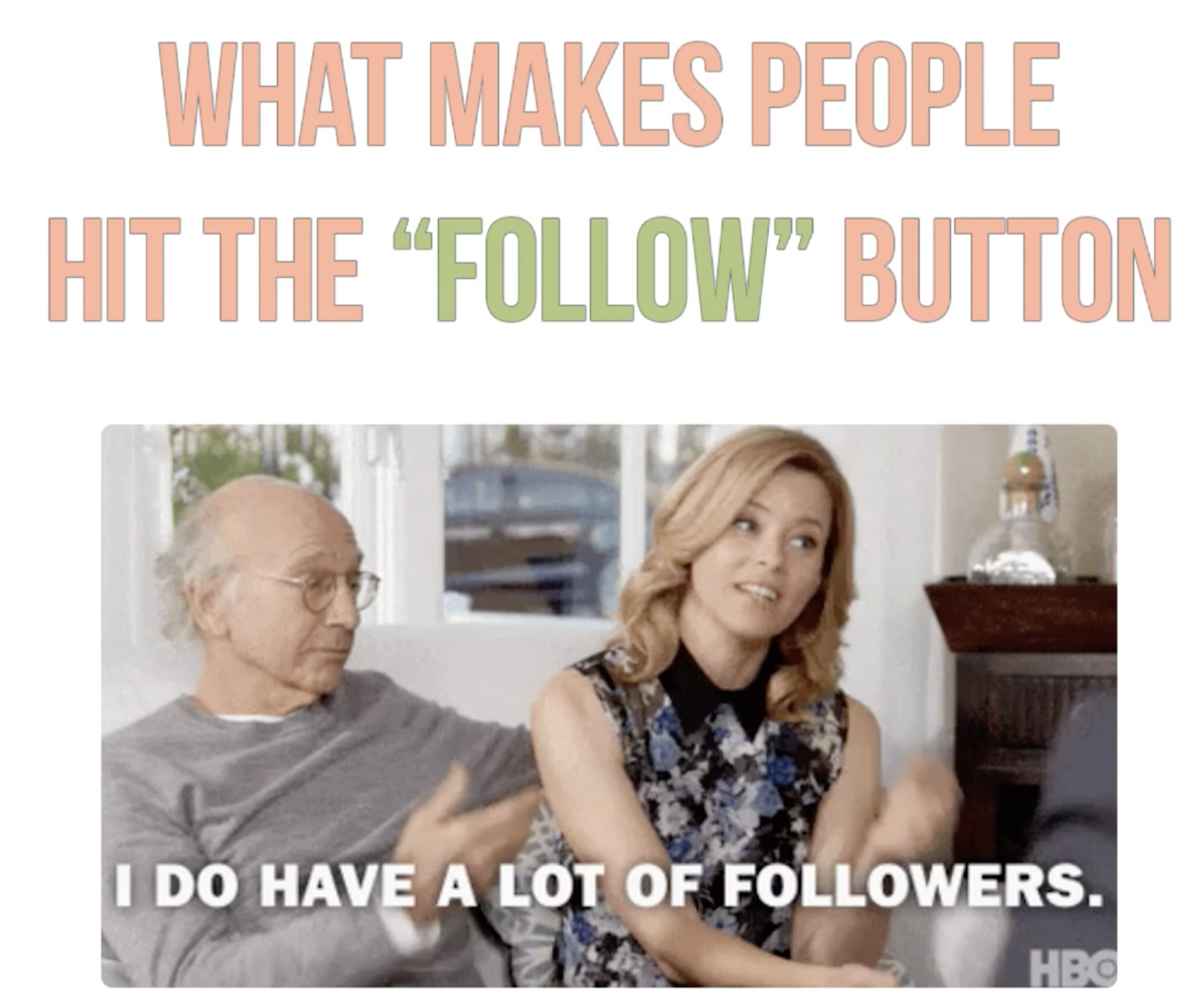 (NSFW language coming up. You’ve been warned!)
(NSFW language coming up. You’ve been warned!)
You’re a restaurant owner or chef, and a critic or customer totally throws your establishment under the bus. Or an artist, and somebody you’ve never met bashes your work. Or… you get the idea. How do you react?
It reaches you on a personal level, so you feel the urge to fire back. Right?
Just this week, a San Francisco chef did just that via a window sign, saying, “Yes we use MSG, we don’t believe in organic food, and we don’t give a sh*t about gluten-free.”
That’s what you want to do, but definitely not what you should do!
Unfortunately, this type of reaction is not uncommon, and it’s occurring far more often thanks to chefs and restaurant owners venting on very public social media platforms. The outrage gets picked up by news outlets, goes viral, and ends up in articles like this explaining how NOT to handle customer service.
Social Media Meltdowns
More classic examples of failed attempts at responding to negative feedback come from Chef John Tesar, Chef Claude Bosi, and the infamous Amy’s Baking Company (Amy and Samy Bouzaglo, the couple who are back in the news this week for allegedly threatening a customer with a butter knife) – all airing their grievances on Facebook and Twitter.
@lesbren fuck you ! Your reviews are misleading poorly written,self serving and you have destroyed the star system and you really suck
— John Tesar (@ChefJohnTesar) July 17, 2014

Please see Buzzfeed for a more in-depth recount of the absolute meltdown from Amy and Samy.

This is your brain on negative feedback – don’t let it reveal itself for all the world to see.
Addressing negative feedback the right way
With hopes of ignoring that fireback urge, I compiled some of the best tips and advice I could find from credible sources when it comes to replying. It’s important to consider the critic might not be personally attacking you, but rather sharing their honest, unfiltered thoughts.
Critiquing an artist’s painting is not the same as critiquing the artist as a person. Critiquing the chef’s pasta sauce is not the same as critiquing the chef as a person. Make sense? Don’t bash back. Perhaps you can take what they say to better your company, product, service, etc.
(Note: There are, however, some people who are just trolling looking to get a rise out of you. Ignore them.)
Penn State
College of Agricultural Sciences, Communications & Marketing
“Consider another avenue for complaints. Chances are, the customer is not seeking to rat you out on the social sites. They just want to vent to their friends, or force your hand to address the issue. So make sure you publicize other options for customers to talk to you and assurances that you will. Then follow through and get back to your customer quickly.”
Shama Kabani
Author of The Zen of Social Media Marketing and CEO of The Marketing Zen Group (via Forbes).
“Even if you do get negative feedback, you can turn it into a positive by engaging in a constructive way and showing that you’re a genuine business.”
Salesforce
6 Ways to Deal With Negative Social Media Comments
“Take it out of the spotlight. Social forums may not be the best place to actually resolve complex issues. And being in a public forum may make it hard for an angry customer to soften their stance. Offer to continue the conversation in an appropriate forum – whether that’s phone, email or an existing support forum online. This shouldn’t be an attempt to silence the critic, simply to help them where it makes sense (so you’re not trying to give complex tech support in a tweet).”
Kim Beasley
CEO of GrowVisibilityWithMe.com (as told to Linda Doell of American Express).
“Offer an incentive. When it comes to handling complaints, Beasley says, ‘Sometimes you have to pour on a lot of sugar … to get to that positive. But it’s so worth it.’ If the person isn’t satisfied with your explanation, you can try offering a business service or a discount to calm the situation and, hopefully, convert the complainer to a satisfied customer.
Beasley recounts one example from her business in which a miscommunication led to a missed appointment with a client. She offered the client free services as a way of remedying the problem. The client accepted the work and was satisfied.”
John Hall
CEO of digitaltalentagents (via Washington Post).
“… Support your position and gain respect by communicating it respectfully. You never want to leave negative feedback out there that makes a good point.”
Patrick Curtis
Founder of WallStreetOasis (via Washington Post).
“Putting your head in the sand is typically not a good approach in the age of social media. If you have nothing to hide and are proud of your products and services, why not use the open forum to take constructive criticism and defend your business or clear up any misunderstandings?”
Jim Hartigan
HNN columnist.
“Apologize: This is a big one, and easy. It goes like this: ‘I’m sorry.’ It can be that easy. Unfortunately, many line-level team members tend to take this sort of thing personally and feel apologizing for something they may not have had any control over to be uncomfortable. My advice: Get over it. Nobody said it was your fault. We aren’t blaming you, so apologize already. To be more powerful, add a little of empathy. ‘I’m sorry for the inconvenience this has caused you. I’m really very sorry this happened.'”
Turning a Negative into a Positive
Totally opposite the poor examples, check out how businesses like Boloco and Samovar Tea Lounge reply to public, negative feedback.
They empathize with the customer and are quick to respond and take action.
Samovar, in response to an unfavorable review providing details on every last thing the customer disliked, gave an equally detailed response addressing every single concern in a polite way, also empathizing with the customer and promising to make improvements.

What are your favorite examples of Internet fights and solutions when it comes to negative feedback? Do you have any experiences dealing with it yourself? Let us know in the comments!
Metter Media LLC is a Boston-based social media management company that implements community-based, localized social engagement strategies for small businesses and corporations alike. Need help with your social media? Email Lauren today.






